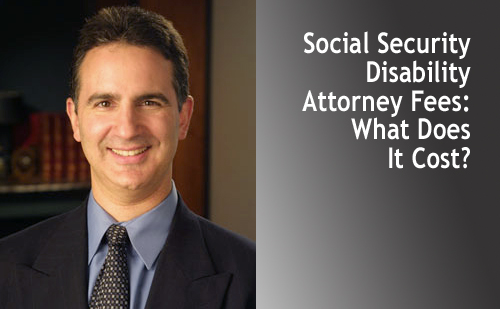When hiring a Social Security Disability attorney, fees should not be much of an issue. Most attorneys who represent disability claimants use the “fee agreement” process for getting paid. The fee agreement process does not allow disability benefits attorneys or other disability advocates to collect any fees unless past-due benefits are awarded to the claimant.
If a claimant hires a disability lawyer to represent them in filing their application for disability benefits and the application and determination process is completed in a timely enough manner so that no past-due benefits are awarded, the lawyer may not be paid any fees. However, because the Social Security Administration often takes a year or more to process a claim, most successful cases are awarded at least some past-due benefits, so the representative-attorney is likely to get paid.
Calculating Social Security Disability Attorney Fees
The fee agreement process also limits how much of a claimant’s past-due disability benefits an attorney can collect. Lawyers and non-attorney disability advocates can only charge claimants no more than 25% of the past-due benefits paid to the claimant (and any beneficiaries on his or her account) up to a maximum of $6,000.
For example, if the past due benefits are $10,000, the Social Security Disability attorney’s fee would be $2,500.00, which is 25% of $10,000. If the claimant is awarded $100,000 in past-due disability benefits, the attorney’s fee would NOT be $25,000, but would be limited to $6,000 because of the fee cap. Claimants owe no fee to their disability advocates unless the claim is won and past due benefits are awarded.
On rare occasions, the fee cap can be increased by the Social Security Administration. If the attorney has performed an unusual amount of work, for example, by representing the claimant at two or more hearings, then the attorney can request that additional fees be paid. However, this rarely occurs and the fee usually is capped at $6,000.
Be aware, though, that the Social Security Administration does not reimburse the attorney for any costs that the attorney has advanced for the claimant, such costs as for obtaining medical records and reports. It is the claimant’s responsibility to reimburse the attorney for these costs. Usually these costs are not extensive, but they are in addition to the Social Security Disability attorney’s fees.
Under the fee agreement process, claimants do not pay any fees “up front.” Social Security Disability attorney fees are only owed if the claim is approved and past-due benefits are awarded by the Social Security Administration. Such an arrangement is called a contingent fee agreement because payment is contingent upon the claim being approved and past due benefits awarded.







